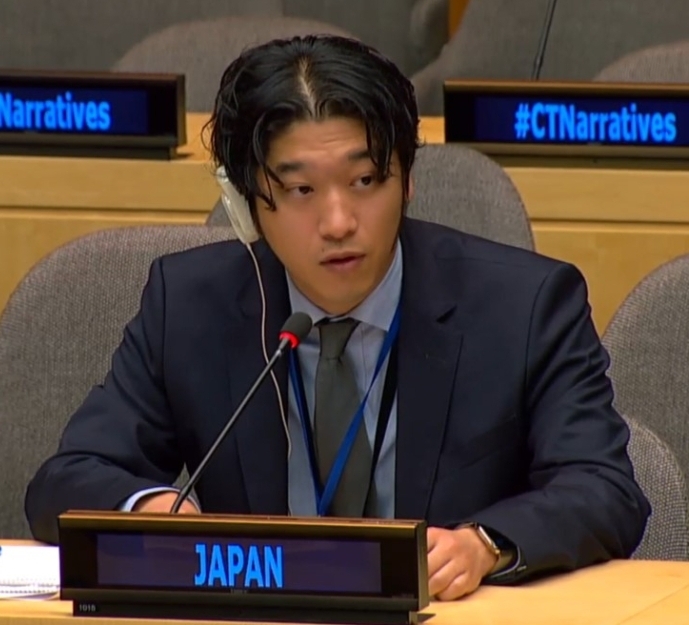Statement by Mr. NAMBA Tatsuhiro, Second Secretary, Permanent Mission of Japan to the United Nations, at the CTC Open meeting of “Countering terrorist narratives and preventing the use of the Internet for terrorist purposes”
2023/10/19

(As delivered)
Mr. Chair, Executive Director of the Counter-Terrorism Committee Executive Directorate (CTED) Ms. Gherman, excellencies, distinguished panelists and participants,
Terrorism in all forms and manifestations constitutes one of the most serious threats to international peace and security. Any acts of terrorism are criminal and unjustifiable regardless of their motivations, whenever and by whomsoever committed.
As highlighted in the Secretary-General’s report (A/77/718), while new and emerging technology offers unmatched opportunities to improve human welfare and new tools to counter-terrorism, concerns and risks associated with its misuse persist as terrorist groups explore new technological frontiers.
Today, we would like to highlight generative Artificial Intelligence technology and its impact on counter-terrorism.
During the Counter-Terrorism Week this June, Japan hosted a side-event together with the United Nations Office of Counter-Terrorism, the United Nations Interregional Crime and Justice Research Institute (UNICRI), CTED, and the Government of Australia. The event focused on the potential malicious use of generative AI for terrorist purposes.
The rapid advancement of generative AI technology, while offering numerous benefits, also presents new challenges. Generative AI poses not a hypothetical but a very real threat to international peace and security today, as terrorists and violent extremists could exploit this technology to create convincing fake content, spread disinformation, manipulate public opinion, and even assist in devising and launching cyberattacks.
We call on Member States to be alert to such real risks and threats. It is important for all of us to take necessary measures. We emphasize that countering terrorist narratives requires a comprehensive and whole-of-society approach. Including through collaboration with the GIFCT, Japan has been actively enhancing public-private partnerships. We welcome and commend the Chair’s effort to ensure the presence of key actors including representatives of the ICT industry, civil society, and academia.
We also commend the efforts of CTED to provide member states with an opportunity to learn by hosting an Insight Briefing on Artificial Intelligence, which took place this week.
As a current member of the Counter-Terrorism Committee (CTC), Japan will also continue to contribute to the follow-up discussion of the Delhi Declaration, which was adopted last year by the CTC, on countering the use of new and emerging technologies for terrorist purposes.
Thank you for your attention.
